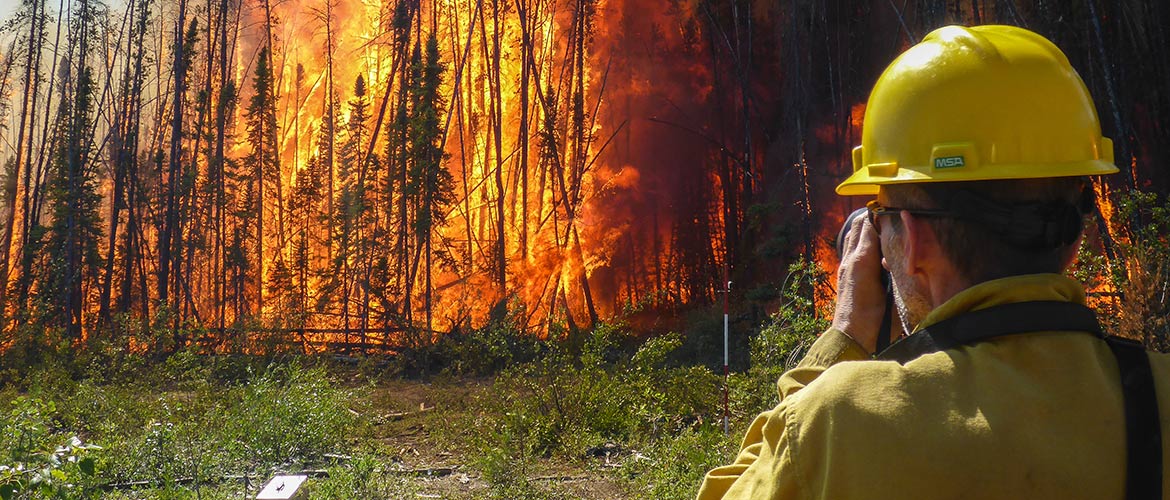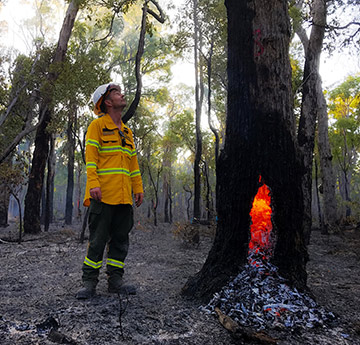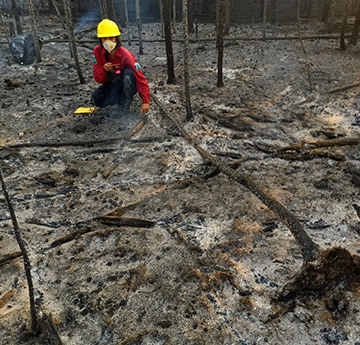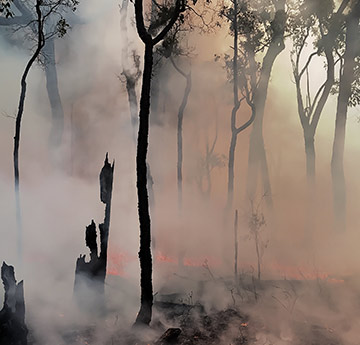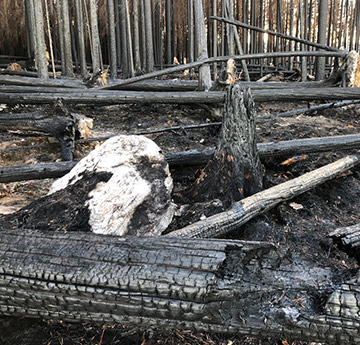‘FirEUrisk - a holistic approach for risk-wise adaptation of the wildfire management in the EU to global changes’ (2021-2025). This €10 Mill. EU Horizon 2020 project led by aims to deliver a paradigm shift in wildfire management in Europe, developing appropriate solutions and services, and gaining knowledge to address the increasing challenges linked to wildfires in Europe. It is carried out in collaboration with 39 partners from 19 countries. Amongst the contributions of the ED group are developing risk assessment and mitigation tools for post-fire erosion and water contamination at European level.
‘Toward a UK fire danger rating system: Understanding fuels, fire behaviour and impacts’ (2020-2024). This project aims to establish and test the scientific underpinning and key components required to build an effective, tailored UK fire danger rating system for use in establishing the likelihood and impact of current and future fire regimes. It is funded via a NERC Highlight Topic Grant in collaboration with Manchester University (lead), London School of Economics, Birmingham-, Exeter- and Portsmouth Universities.
‘Advancing 3D Fuel Mapping for Wildfire Behaviour and Risk Mitigation Modelling’ (2019-2022). In this project ED group members will improve understanding and mitigation of wildland fire by advancing wildfire behaviour model capabilities. Through the development of new automated methods (algorithms) it will implement real 3D fuel data into physics-based wildfire behaviour models. These models are the most advanced in terms of their ability to forecast fire behavior and the work aims to provide a step-change in physical fire modelling capabilities. This project is funded by a NERC New Investigator grant in collaboration with the US Forest Service and Natural Resources Wales.
‘Towards a Fire Early Warning System for Indonesia’ (ToFEWSI) (2017-2021). This NERC/NEWTON funded project aims to developing a suite of climate-, hydrological- and agent-based modelling tools at landscape to regional-scales to predict the incidence of peat and forest fires in Indonesia. The project will help Indonesia to reduce local fire impacts and regional haze pollution, and meet its commitments under the ASEAN Agreement on Transboundary Haze Pollution and the Paris Climate Agreement on emissions reduction.
‘Wildfire impacts on carbon dynamics in vulnerable peatlands’ (2019-2022). In this Royal Society UK-China cost share programme grant between ED group members and researchers from the Chinese Academy of Sciences we aim to initiate the production of much needed knowledge on the effects of wildfire history (frequency and severity) on peatland carbon pools by quantifying pyrogenic carbon (a long-lived by product of wildfires) in a range of Chinese and UK peatlands.
‘Impacts of the extreme 2018 forest fires and post-fire forest management on carbon pools and climate forcing’ (2019-2022). This project focuses on the largest wildfire that occurred in the extreme 2018 wildfire season in Sweden. It examines how fire severity and forest management influence carbon pools and carbon emissions in a common type of managed European boreal forest. It is funded by the Swedish Research Council and carried out jointly with Lund University, Sweden.
FIRElinks - ‘Fire in the Earth System: Science & Society’ (2018-22). This programme, co-lead by the ED group, is developing an EU-spanning network of scientists and practitioners involved in wildfire research and land management. It connects communities from different scientific and geographic backgrounds to enable the sharing of different experiences and advancing approaches to fire research. It brings together 132 scientists and practitioners from 38 countries and is funded by the H2020 EU COST-Action programme.
‘Fire and water: predicting and mitigating water pollution risk from wildfire ash’ (2018-2022). This project led by the ED group involves (i) obtaining critical fundamental knowledge on wildfire ash transport processes and its contamination potential and, using this knowledge for (b) developing the first end-user probabilistic model that allows predicting ash delivery and associated water contamination risk to the hydrological network. This project is funded by NERC and carried out in collaboration with the University of Melbourne, the US Forest Service and industry partners in the UK and Australia. Some of its outcomes are described here.
‘Realising the natural capital of Welsh peatlands’ (2018-2020). This Welsh Government funded project aims to improve the condition and management, appreciation and understanding of Wales’ peatlands through the delivery of practical restoration works, promoting best peatland management practice, increasing the awareness and enjoyment of Welsh peatlands, and improving the evidence base on Welsh peatlands. It is led by Snowdonia National Park Authority, in partnership with Brecon Beacons National Park Authority, Centre for Ecology and Hydrology, IUCN UK Peatland Programme, Montgomeryshire Wildlife Trust, National Trust, Natural Resources Wales, and Swansea University.

